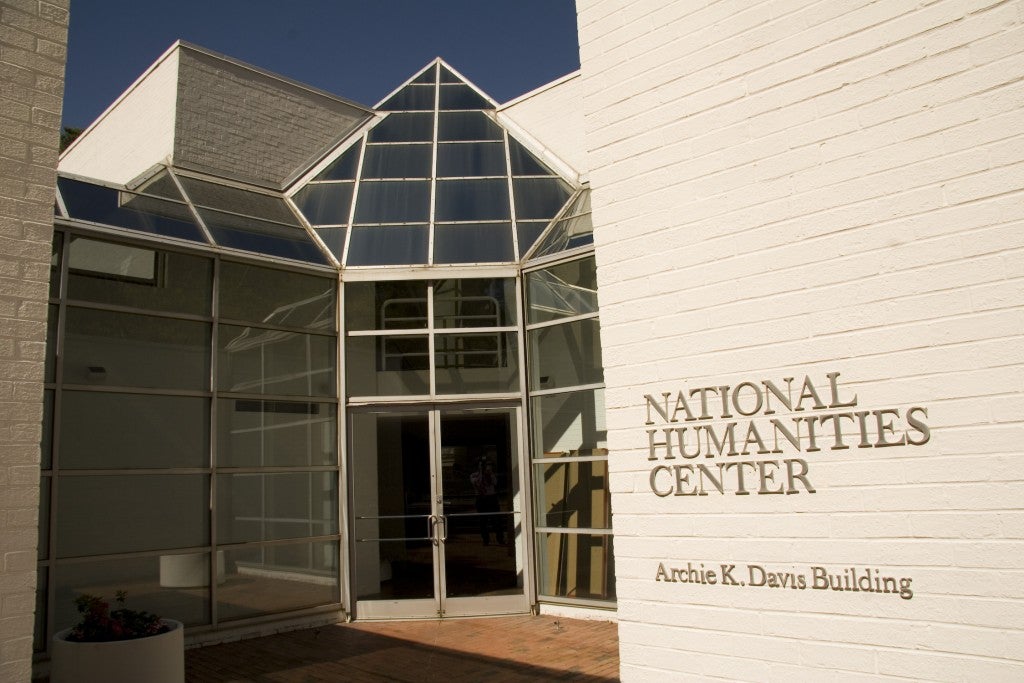English associate professor selected for National Humanities Center summer residency

Frost, associate professor of English, will participate in the National Humanities Center summer residency program this June. (Contributed photos)
Dr. Erin Frost, associate professor of English at East Carolina University, recently was selected for a summer residency program at the National Humanities Center located in Research Triangle Park, North Carolina. According to the NHC website, the center is one of the most prestigious independent research institutes in the world and is the only one dedicated exclusively to the humanities.
“I’m so excited and really honored,” Frost said. “I’m thrilled that there is a program like this to support projects in the humanities.”
The residency is a four-week program that runs June 3-28 and gives participants an opportunity to work on a current research project or jumpstart a new one. Scholars receive lodging, food and assistance from the center’s team of librarians.
Frost will continue researching and writing her newest book on apparent feminism, an original methodology she developed during her dissertation work.
The book, “Feminist Technical Communication,” uses feminist theory to reorient how people view efficiency so it is not just about using fewer resources but also paying attention to the human aspects of the situation; a balance, rather than being more resource-focused.
Frost said the residency will help by giving her the time necessary to develop her manuscript. She also said the library’s resources will be beneficial for the chapters in her book that focus on the history of feminist theory and explaining what feminism means.
“People don’t always have a great understanding of what it means and what it has meant historically,” Frost said. “So I think it will really help me to be able to have that support, to explain that feminism means different things and how we can leverage some of those particular meanings.”

Frost will spend the month of June working on her book manuscript at the National Humanities Center.
She aims to complete her book by 2020, during the 10-year anniversary of the Deepwater Horizon oil spill, which she uses as a case study in her book.
“I don’t want it to be just a theory book about abstract concepts,” Frost said.
She said she wants to give readers a concrete example of how feminist thinking can make a difference.
In her example of the Deepwater Horizon disaster, Frost said that if people at BP and Transocean had been paying attention to some of these practices before the disaster happened, then it is possible it would not have happened at all.
According to Frost, the types of feminist thinking or practices that could have been used to avoid the disaster include being more human focused, paying attention to the environment, embracing collaboration and listening to the people on the ground.
“My big hope is that people will teach this book and students who are going on and working in corporations will actually do this — that this will make a practical, concrete difference in the world. That is my hope. That is my dream,” she said.
ECU’s Thomas Harriot College of Arts and Sciences and the provost’s office are collaborating to cover the cost of Frost’s participation in the residency program.
“Erin Frost is a rising star in her field, and I am pleased that as a university we are able to support promising work in the humanities such as hers,” said Dr. William M. Downs, dean of Harriot College.

Learn more about the National Humanities Center and the summer residency program.
-by Lacey L. Gray, University Communications